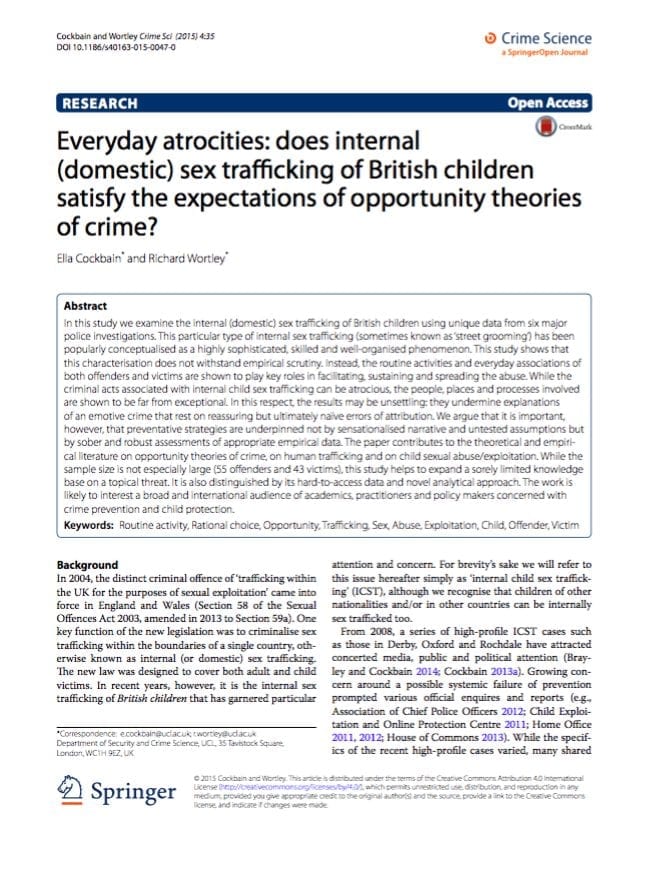
Everyday atrocities: does internal (domestic) sex trafficking of British children satisfy the expectations of opportunity theories of crime?
In this study we examine the internal (domestic) sex trafficking of British children using unique data from six major police investigations. This particular type of internal sex trafficking (sometimes known as ‘street grooming’) has been popularly conceptualised as a highly sophisticated, skilled and well-organised phenomenon. This study shows that this characterisation does not withstand empirical scrutiny. Instead, the routine activities and everyday associations of both offenders and victims are shown to play key roles in facilitating, sustaining and spreading the abuse. While the criminal acts associated with internal child sex trafficking can be atrocious, the people, places and processes involved are shown to be far from exceptional. In this respect, the results may be unsettling: they undermine explanations of an emotive crime that rest on reassuring but ultimately naïve errors of attribution. We argue that it is important, however, that preventative strategies are underpinned not by sensationalised narrative and untested assumptions but by sober and robust assessments of appropriate empirical data. The paper contributes to the theoretical and empirical literature on opportunity theories of crime, on human trafficking and on child sexual abuse/exploitation. While the sample size is not especially large (55 offenders and 43 victims), this study helps to expand a sorely limited knowledge base on a topical threat. It is also distinguished by its hard-to-access data and novel analytical approach. The work is likely to interest a broad and international audience of academics, practitioners and policy makers concerned with crime prevention and child protection.
